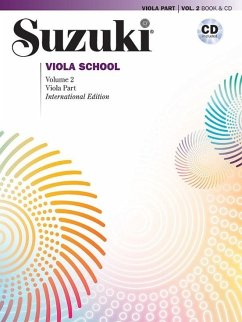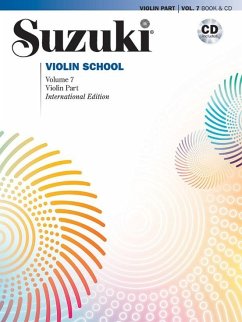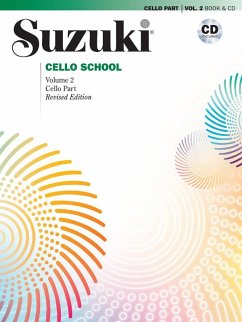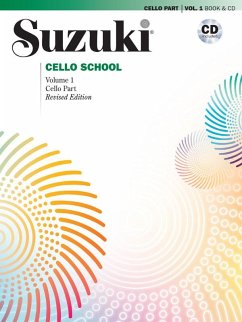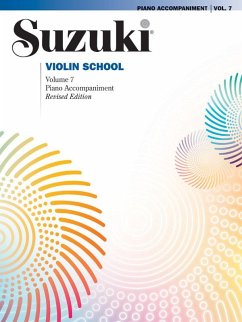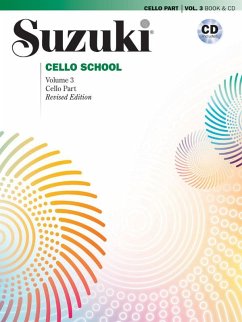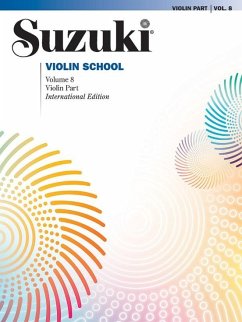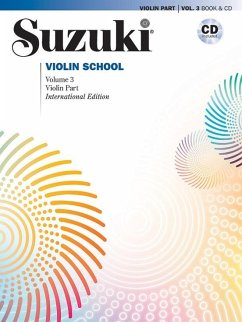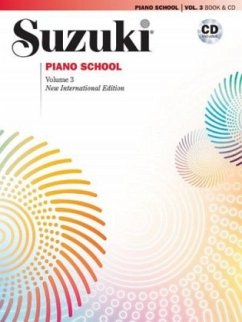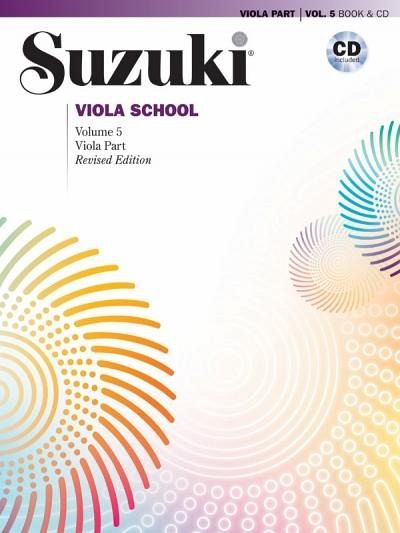
Suzuki Viola School Viola Part & CD, Volume 5 (Revised)
Ausgabe für Viola. Revised
Versandkostenfrei!
Versandfertig in 3-5 Tagen
33,95 €
inkl. MwSt.

PAYBACK Punkte
0 °P sammeln!
The Suzuki Method® of Talent Education is based on Dr. Shinichi Suzuki's view that every child is born with ability, and that people are the product of their environment. According to Dr. Suzuki, a world-renowned violinist and teacher, the greatest joy an adult can know comes from developing a child's potential so he/she can express all that is harmonious and best in human beings. Students are taught using the "mother-tongue" approach. Now available as Book & CD kit. Titles: Tonalization (S. Suzuki) _ Position Etudes-5th Position (S. Suzuki) _ Etude for Changing Strings (S. Suzuki) _ Sonata i...
The Suzuki Method® of Talent Education is based on Dr. Shinichi Suzuki's view that every child is born with ability, and that people are the product of their environment. According to Dr. Suzuki, a world-renowned violinist and teacher, the greatest joy an adult can know comes from developing a child's potential so he/she can express all that is harmonious and best in human beings. Students are taught using the "mother-tongue" approach. Now available as Book & CD kit. Titles: Tonalization (S. Suzuki) _ Position Etudes-5th Position (S. Suzuki) _ Etude for Changing Strings (S. Suzuki) _ Sonata in G Major (B. Marcello/Preucil) _ Country Dance (C. M. von Weber) _ Practice Suggestions ( D. Preucil) _ Nina (G. B. Pergolesi) _ Spinning Wheel (N. Rubinstein) _ Gigue (F. M. Veracini) _ Exercises for Shaping the Left Hand (S. Suzuki) _ Suite I in G Major (J. S. Bach) _ Moto Perpetuo (C. Bohn) _ Old French Dances (M. Marais) _ Tonalization---C Major and minor scales and arpeggios (D. Preucil) _ Shifting Studies (D. Preucil) _ Concerto No. 3 in C Minor, Op. 12 (F. Seitz).
Dieser Artikel kann nur an eine deutsche Lieferadresse ausgeliefert werden.



